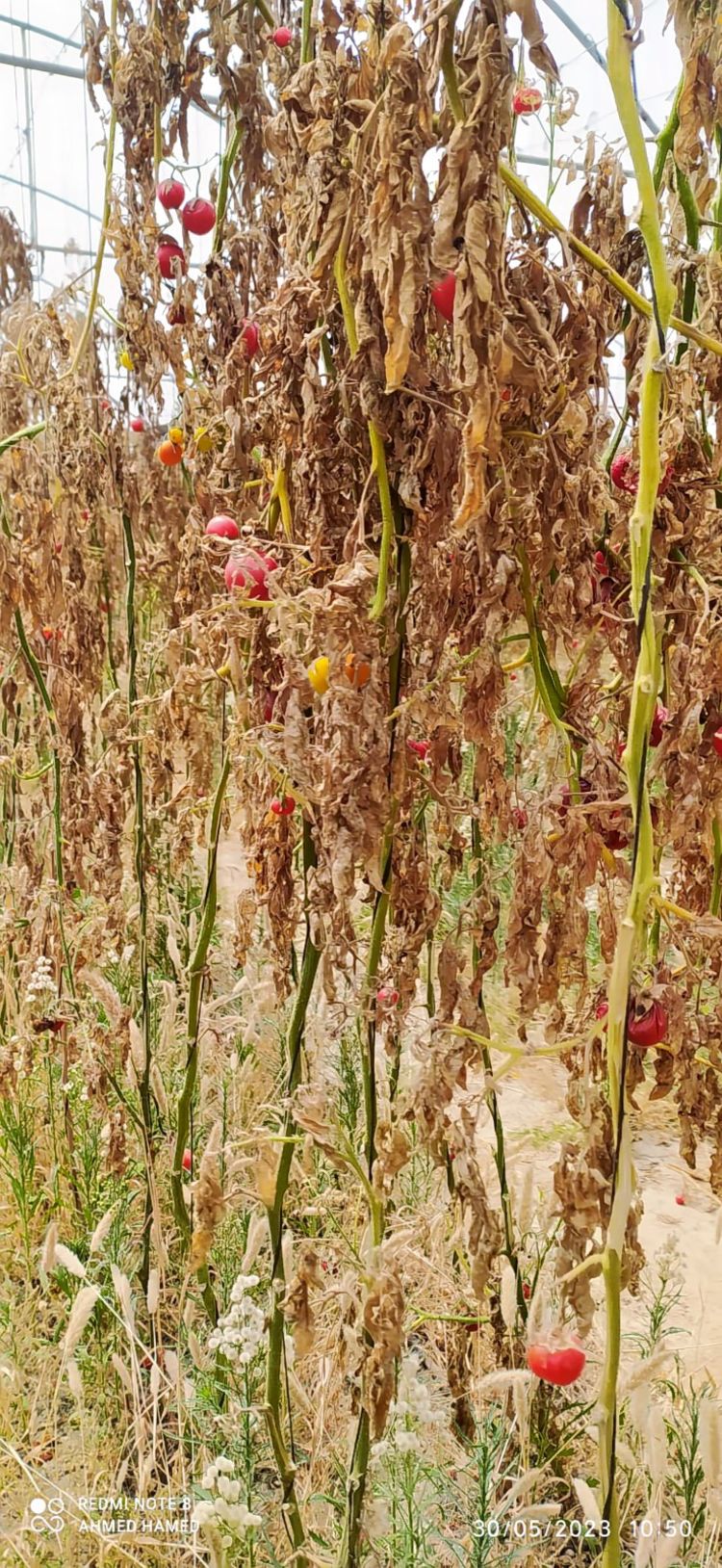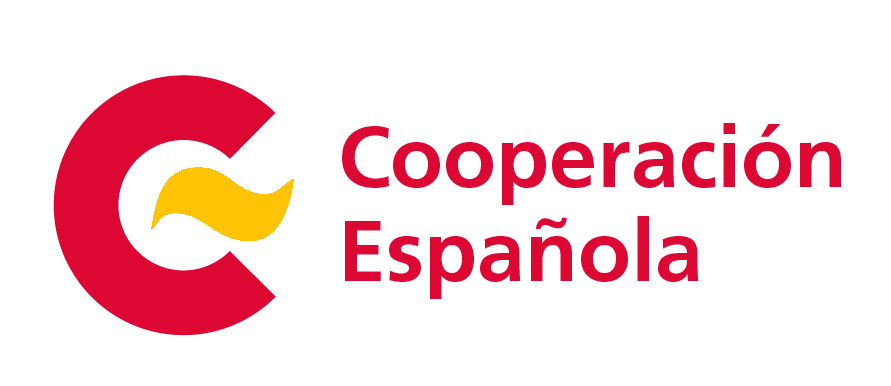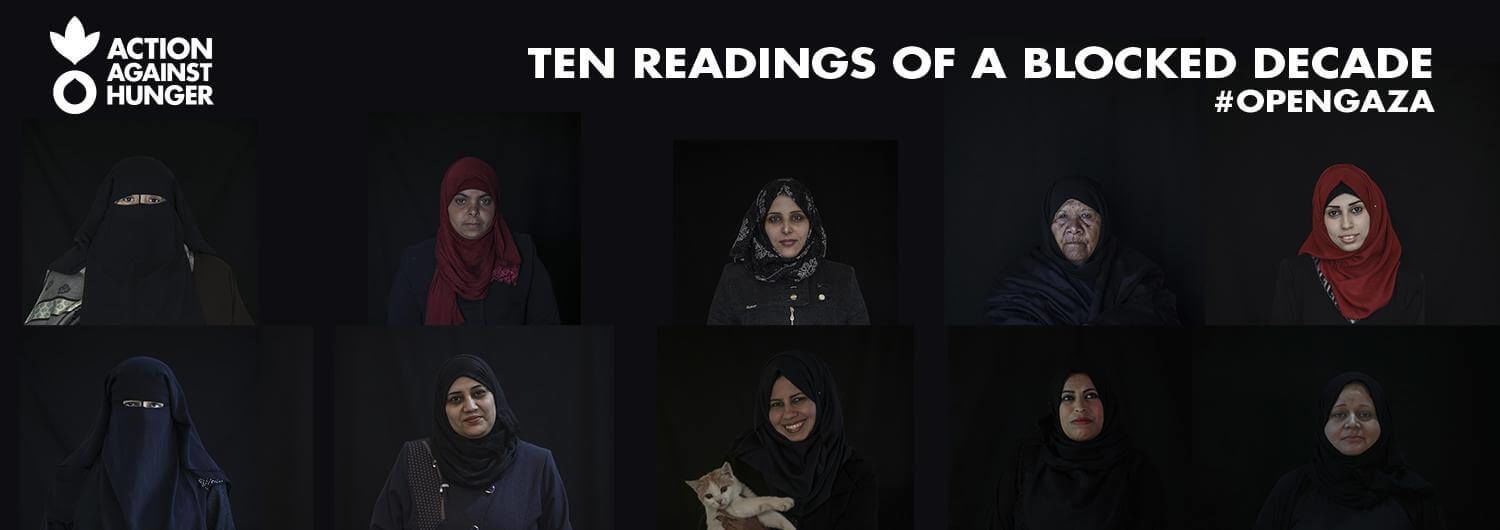Generating Income Under Blockade
21 June 2023
16 years of Israel's blockade of Gaza
5,844 days fighting unemployment and poverty

This year, 2023, marks 56 years of Israel’s military occupation of the Palestinian territory and 16 years of land, air and sea blockade imposed on the Gaza strip. Recurrent escalations of hostilities have further eroded basic infrastructure, service delivery, livelihoods and coping mechanisms. 45.9 per cent of the working age population in Gaza is unemployed, according to the Palestinian Central Bureau of Statistics (PCBS). 1.3 million people in Gaza rely on humanitarian assistance, according to the United Nations Office for the Coordination of Humanitarian Assistance (UN OCHA).
In 2017, marking 10 years of the Gaza blockade, Action Against Hunger (AAH) highlighted the stories of ten female breadwinners in Gaza, revealing intimate stories that illustrated the devastating impact of blockade and war.
This was part of a project funded by the oPt Humanitarian Fund, in which Action Against Hunger supported 160 women whose businesses were damaged or lost during the 2014 war in Gaza. The objective was to increase disposable income for these highly vulnerable families, thus making them more resilient to future shocks.
Six years later, we caught up with Yasmeen and Ameera...
Yasmeen had plans to run a successful and popular beauty salon.
Ameera aimed to run a grocery store big enough to serve the needs of her whole community.
Yasmeen
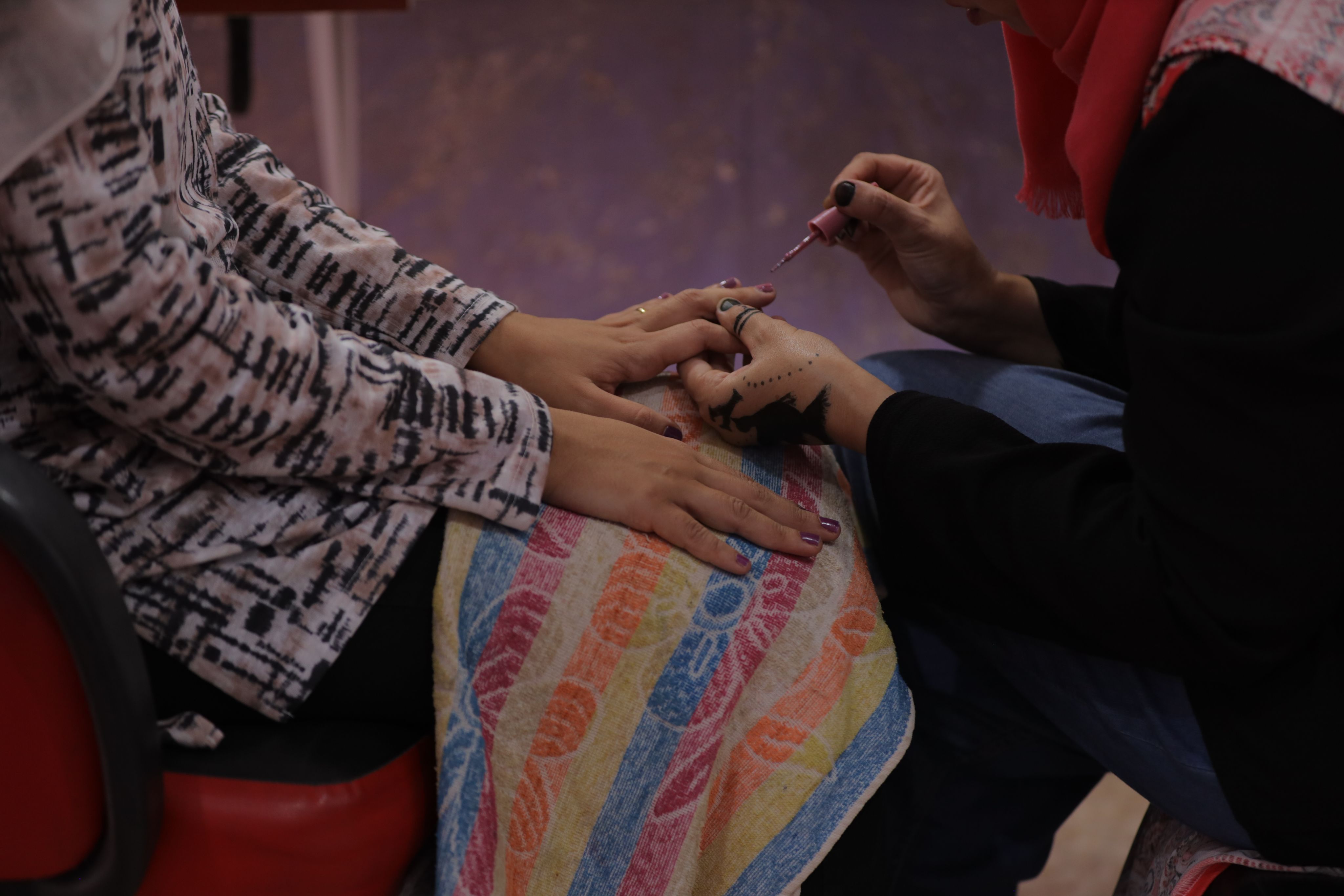
“I have a small beauty salon, but it still needs lots of improvements”, says Yasmeen. “My business was hit hard by the Covid-19 pandemic, and with the recent escalations [May 2021, August 2022 and May 2023], we were also completely closed. Even when the escalations ended, the socio-economic effects remained, and people have less interest in visiting my salon. Despite the challenges I still believe in myself and my business, and always hope for a better future.”
Ameera

“My grocery store has been expanded and contains enough goods to meet the needs of my neighbourhood,” explains Ameera. She’s proud of this accomplishment, particularly given some of the social and traditional constraints on a women’s participation in business, including the need to balance the needs of the business with the needs of a family. Ameera has also had to manage other hurdles: “We had to close for a month during Covid-19, and fully close during the recent escalations [May 2021, August 2022, May 2023]. These shocks affected my revenue and made it difficult for me to repay my suppliers,” she adds. Ameera explains that it is expensive to keep her shelves stocked with variety of goods because of the cost of importation into Gaza. Without such restrictions, her business would be much more profitable, she explained.
The repeated cycles of violence and the underlying root causes of instability continue to hamper the ability of female breadwinners, like Yasmeen and Ameera, to make a sustainable living.
The frequency of recent shocks in Gaza – the 2014 conflict, Covid-19, the May 2021, August 2022 and May 2023 escalations – has continuously set-back the efforts of Gaza residents to build and maintain resilient businesses.
Female breadwinners require targeted and scaled-up assistance to support their socio-economic needs. Continuous, multi-year investment is required to support these women, and unless the underlying root causes of vulnerabilities are addressed, women will continue to be denied the opportunity for economic prosperity. Action Against Hunger continues to support Ameera’s business with the generous support of the Spanish Agency for International Development Cooperation (AECID). Ameera now has a food processing unit and is producing date paste. The grocery store is operating well.
Yasmeen’s situation, however, is more challenging. Limited funding opportunities coupled with the ongoing consequences of the blockade, means that keeping the salon business operating is a constant battle. Yasmeen is thinking of alternative income generating activities to be able to support herself and her family.
Action against hunger continues to support small business in Gaza, like Mohannad's carpentry business.
We also provide support to farmers looking to rehabilitate their greenhouses and increase their production, like with Jamal.
Mohannad

Israel’s blockade of the Gaza strip, the instability, restrictions on imports and exports, and the limited electricity supply, affect all sorts of businesses. Like Mohannad, a carpenter from Gaza City, and Jamal, a farmer from Khan Yunis.
Mohannad faces several challenges in keeping his carpentry business afloat, let alone thriving. Mohannad is making decorative items for interior design, furniture, gifts, souvenirs, boxes, wooden candle holders, to name a few. Mohannad is paying more for the price of raw materials because of increased global prices and because of additional costs related to importation into Gaza. Furthermore, Mohannad faces delays or bans on the important of materials, machines and spare parts he needs for his skilled work, due to Israel’s dual-use policy, which restricts the entry of goods that Israel claims can be used for civilian and military purposes.
Further hindering Mohannad’s business are the restrictions of the freedom of movement between Palestinians from Gaza and the West Bank. “The restrictions on movement between Gaza and the West Bank limit my capacity to gain knowledge, learn new techniques and create market linkages,” he explains. “Exportation is one of my dreams. Many of my Facebook followers from around the world ask if they can buy my products, but unfortunately, I cannot export due to the high exporting and logistical costs. Some products are prohibited for being exported for cited security reasons”.
When asked how he deals with the limited electricity in Gaza, Mohannad explains that it is essential for running the machines. “If the electricity cuts, I have to stop working until the electricity comes on again.” Currently, Gazans have access to eight hours of interrupted electricity per day.
The reduced purchasing power in Gaza due to the economic decline means people do not have funds for discretionary spending on things like cheese and wood-crafts – making it difficult for businesses like Ahmed and Mohannad’s to stay afloat. “Many people are still worried about the unstable security situation which means they are only buying for their essential needs,” says Mohannad.
Jamal
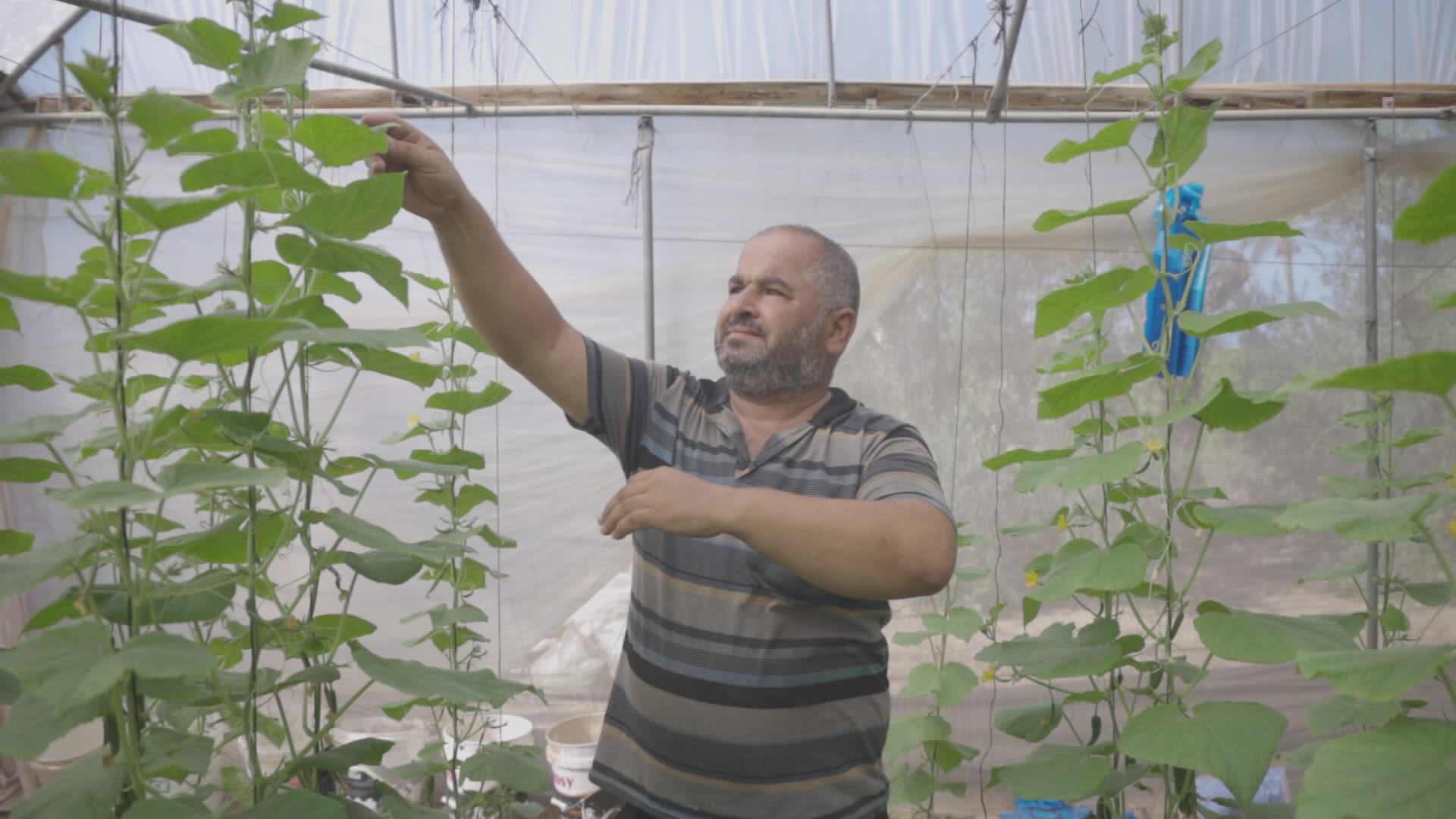
Farmers in the Gaza strip face continuous challenges due to Israel’s blockade and restrictions on the import and export of goods and materials. Jamal explains that exporting his produce is critical to generating a profit in Gaza, but the ability to export is sometimes suspended. This happened in the four days that led up to the August 2022 escalation when Israeli authorities closed the Kerem Shalom commercial crossing, preventing produce and other goods from leaving Gaza. Fresh vegetables must be delivered to the end consumer within a couple of days of harvesting. But produce often goes bad during the exportation process due to delays at the crossing and inadequate cold storage facilities. “These factors drive down prices and make it harder for me to make a profit,” Jamal explains. Furthermore, transportation costs have increased, further decreasing any revenue made from exports.
The limited electricity is also a challenge for Jamal. “I must adapt my irrigation schedule based on the electricity available. Less electricity means less irrigation which can lead to plant diseases and reduce the quality and quantity of produce,” Jamal explains. Fertilizers could help with this problem, but many types are banned by Israel. The available fertilizers are lower quality and increase soil salinity and soil degradation.
During military escalations, Jamal cannot access his land to irrigate, farm or sell his crops, causing additional financial losses. Jamal observes that Gaza residents have a reduced purchasing power since Covid-19 and the May 2021 and August 2022 escalations. “I have to keep lowering my prices so customers can afford it. It is even difficult to collect cash from wholesalers buying my produce. It means I don’t have money to market my products, or gain profits,” he says.
16 years of siege has limited opportunities for economic independence and growth of small businesses. Frequent shocks imperil already fragile businesses. Access restrictions limit markets for selling products and the ability of business owners to build their own capacity. Humanitarian assistance helps entrepreneurs to establish businesses but addressing the root causes of these challenges is the only way for businesses to reach their full potential.
Following the May 2023 escalation in Gaza and Israel, a rapid assessment was conducted by Action Against Hunger, targeting 266 farmers in Gaza (93% males, 7% females). 150 farmers (56% of those assessed) reported damages to their agricultural assets. These are farmers AAH is supporting with the generous support of the European Union, and the Crisis and Support Centre of the French Ministry for Europe and Foreign Affairs (CDCS).
Farmers had already been hit during the escalation in May 2021, and were recovering from the impact of Covid-19, rising food costs and the ongoing climate challenges.
Farmers were unable to access their farming land during the five days of escalation, resulting in a loss of 207 tonnes of production.
Escalations during peak harvesting season not only impacts the crops, but also the labourers relying on the daily wages.
The Palestinian Ministry of Economy reported that due to restrictions on access to jobs and livelihoods, the total losses in economic activity in Gaza reached 10 million USD per day of escalation.
